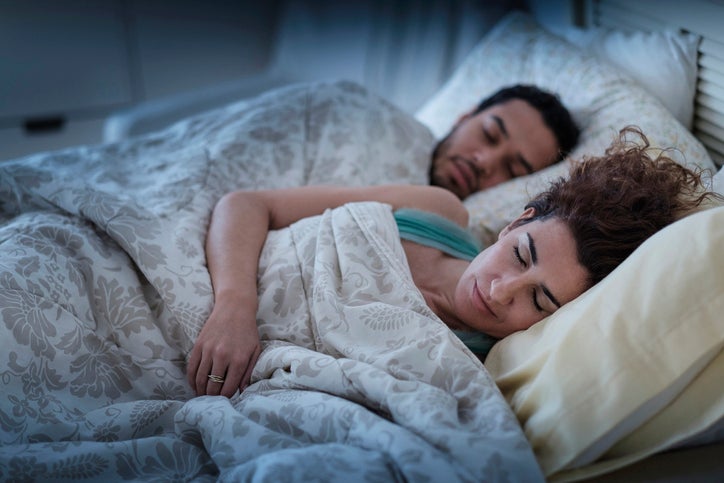Improve Your Sleep in 3 Simple Steps
March 22, 2022
By: St. Joseph Mercy Health System
Categories: Behavioral & Mental Health
Getting a good night’s sleep is one of the most important things we can do for our overall health and well-being. Sleep deprivation leaves the brain exhausted, causes sluggishness, low attention span,
decreased sociability, depressed mood, insulin resistance and decreased performance. Chronic sleep deprivation is strongly correlated with behavioral health issues, such as depression, anxiety and substance use, as well as a weakened immune system.
The body profoundly needs sleep, and when a person is not getting enough quality sleep it impacts all systems of the body. A lot of people view sleep as a passive activity, but to set ourselves up for a restorative night of sleep takes preparation. Here are a few simple steps to take during the day to help set the stage for better sleep:
Preparation: Sleep is not passive; it requires a proactive routine.
- Get regular physical activity in the morning or afternoon: Exercise promotes quality sleep. Exercise in morning makes it easier to fall asleep/wake up. Exercise in evening is ok if done on a regular basis and not immediately before bed.
- Outdoor light exposure: Early morning light is best way to keep circadian rhythm synchronized.
- Control caffeine, nicotine, and alcohol consumption: Minimize caffeine later in the day as it can prevent you from falling asleep. Limit alcohol consumption to 2 drinks/day for men and 1 for women and not after 3 hours before bed. Alcohol can cause you to wake up in the night and it causes sleep to be fragmented. Nicotine is a stimulant that is best avoided entirely.
- No bright/blue light 2 hours before bed: Blue light can decrease melatonin production and increase cortisol. You can purchase special light bulbs or install an app/filter on your phone to reduce blue light exposure. Of note, phones/computers/TV, etc. are stimulating even if they do not emit blue light.
Environment: Craft your surroundings to support optimal sleep.
- Use the bedroom for sleep and intimacy only: No TV, laptop, tablet, etc. in bedroom. Recommended no pets or children in bed.
- Turn thermostat down: Ideally between 60-67F. A drop in core body temp is a sleep signal for the body that it is time to sleep
- Dark room: Try black out curtains or an eye mask. No nightlight, and cover clocks and other things that emit light.
- Quiet: Try earplugs to help if your sleep is disrupted by external noises/partner snores, etc. White noise can also help to cancel out distracting noises that can disrupt sleep.
Timing: Establish a regular sleep schedule.
- Establish a sleep-wake routine: Stick to a routine, even on weekends. Any routine that has a bedtime before midnight and allows for 7-8 hours is reasonable.
- Don’t eat for at least 2 hours before bed: Your body needs time to begin metabolizing and absorbing food.
- Keep naps to 20-30 minutes in the early to mid-afternoon: Research shows that naps (even 9 minutes long) can be restorative. Short naps prevent person from going into deep sleep, which can extend the duration of the nap, result in the person feeling sluggish, and interfere with nighttime sleep. If you have sleep problems like insomnia, naps can add to the problem especially if taken late in the day. Naps do not make up for chronic sleep loss or poor-quality nighttime sleep.
For more information, check out this Lifestyle Medicine Sleep Fact Sheet.

Ready to take the next step?
Our Lifestyle Medicine team is here to support you on your journey to better health. Connect with one of our Board-Certified Lifestyle Medicine Specialists today.




